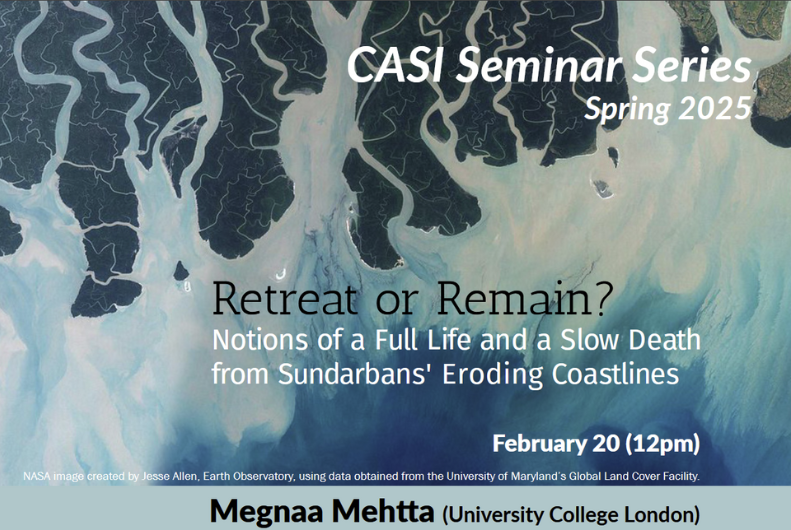Retreat or Remain? Notions of a full life and a slow death from Sundarbans' eroding coastlines
Join Envirolab, the South Asia Center, the Environmental Innovations Initiative, and the South Asia Studies Department in welcoming Megnaa Mehtta, Assistant Professor in Social Anthropology at University College London.
As sea level rise erodes coastlines of the Sundarbans, “managed retreat”—a process of relocating people to supposedly safer areas—is put forth by policymakers globally, and in India, as an adaptation solution. Through long-term ethnographic research with residents of Sundarbans’ coastal communities, this seminar examines their desires to remain in their villages despite recurrent experiences of floods, cyclones, and land erosion.

As sea level rise erodes coastlines of the Sundarbans, “managed retreat”—a process of relocating people to supposedly safer areas—is put forth by policymakers globally, and in India, as an adaptation solution. Through long-term ethnographic research with residents of Sundarbans’ coastal communities, this seminar examines their desires to remain in their villages despite recurrent experiences of floods, cyclones, and land erosion. The motivations to remain are because many know the alternative—enmeshing themselves within India’s precarious and risky informal economy—to be worse, akin to what some call a slow death, even as coastlines classified as uninhabitable by policymakers, counterintuitively, offer a safer and fuller existence. Furthermore, this seminar disaggregates what it means to remain and capacities (or incapacities) of aspiring for relocation, in relation to residents’ land ownership, livelihoods, gender, disability, and age. Prof. Mehtta examines the dense relational webs of kinships, sociality, ritual, and non-human life that make a space into a shongshar (household/home/world).